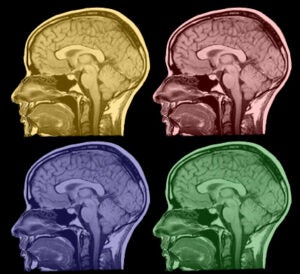The simplest way of describing the USC Brain and Creativity Institute is to say that it is dedicated to discovering how the human brain generates individual and social well-being. In the BCI’s unique environment, renowned neuroscientists and a new generation of brilliant researchers, work side-by-side with a diverse group of students with expertise in psychology, brain imaging, computer science, engineering, physics, education, psychiatry, philosophy, and the arts.
Together, they tackle a range of issues. For example, in order to better manage conditions such as pain, depression and addiction that drastically reduce individual well-being, it is necessary to understand how the brain generates emotions and feelings. BCI investigators use several approaches, from state-of-the-art human brain imaging to laboratory studies, to help identify novel strategies that control these problems ranging from social interventions to the development of new medications. This allows individuals who struggle with these conditions to make positive contributions to our society, communities and economy.
A deeper understanding of human feelings also allows us to address important issues regarding spiritual well-being, which in turn helps shape a well-educated and creative citizenry. For example, early results of an ongoing BCI study undertaken in collaboration with the Los Angeles Philharmonic and the GROW@Annenberg Foundation show the remarkable neural and cognitive benefits of early musical education on the minds and brains of children ages 5 to 12.
BCI researchers are applying neurobiological models of life regulation to analyze the emotions and feelings that underlie societal conflicts in different cultures. This allows them to develop solutions that aim at social well-being through such factors as economic stability, fair governance and conflict resolution.
Artificial intelligence and the development of robotics challenge the conventional boundaries of the definition of humanity. The moral questions surrounding these advances are the focus of a BCI team involved in comparing the designs of living systems and of intelligent artifacts. The future of humanity and its well-being depend, in good part, on understanding the limits, the benefits and the risks of the new technical developments. Moreover, these studies may result in the design of a new generation of lifelike robots and in the elucidation of long-standing puzzles of philosophy and science.
Please visit the individual research pages for more information on each program.